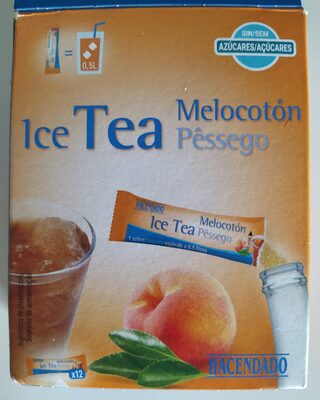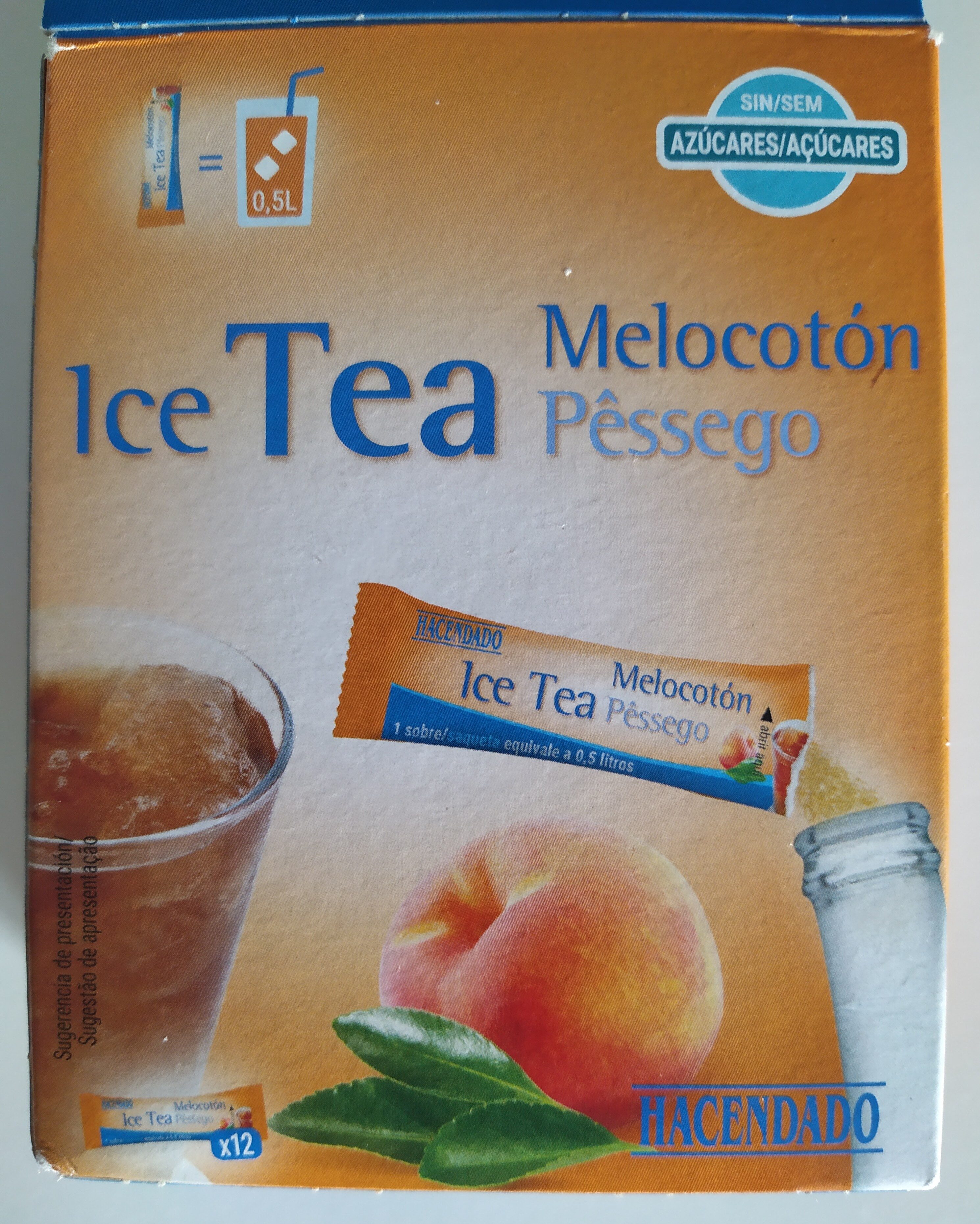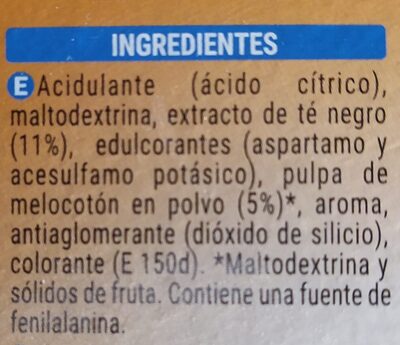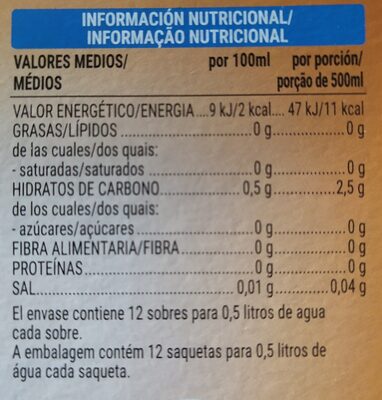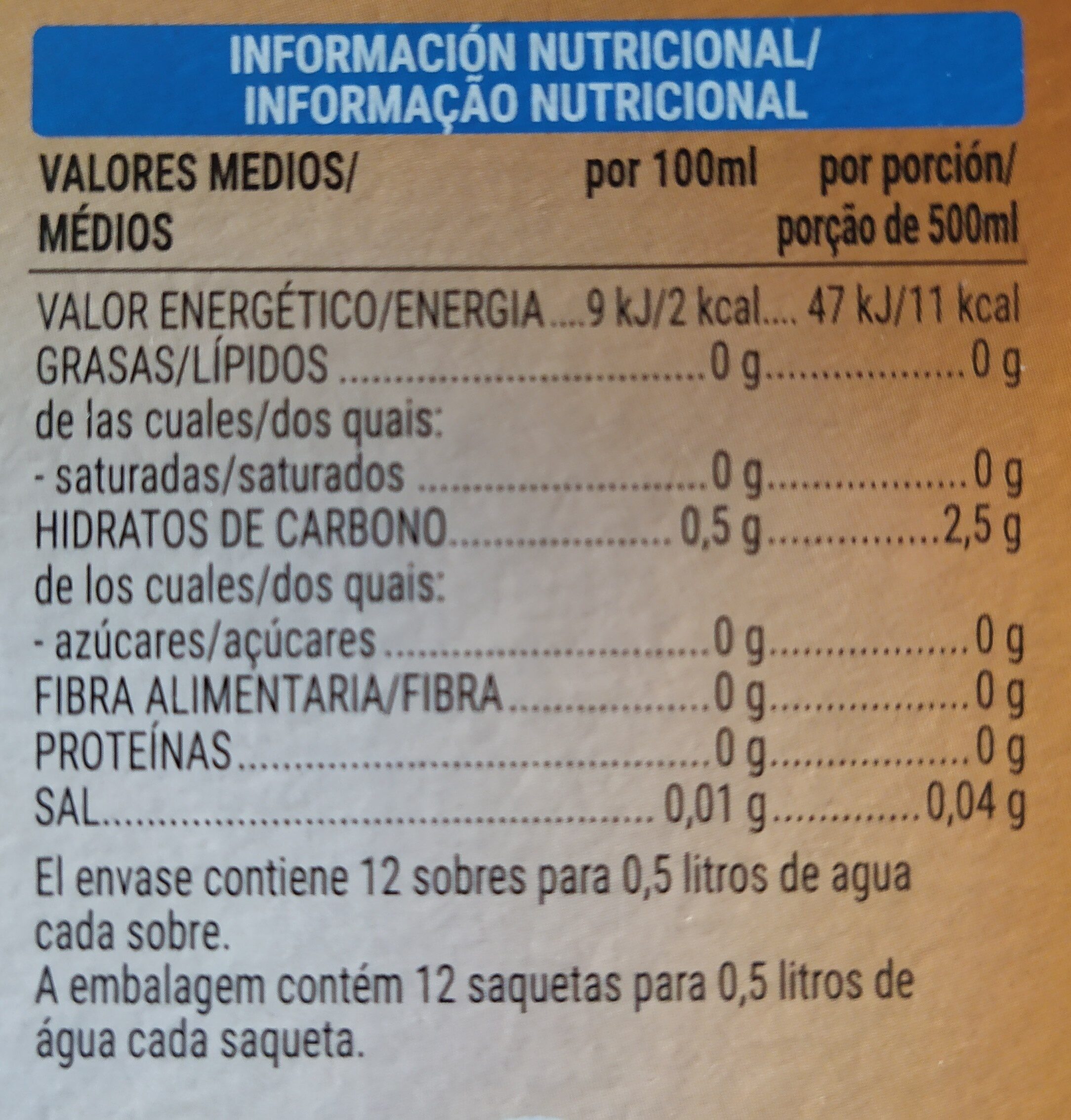Ice Tea Melocotón - Hacendado - 36 g
Aquesta pàgina del producte no està completa. Podeu ajudar a completar-la editant-la i afegint-hi més dades a partir de les fotos ja disponibles, o fent-ne més amb l'aplicació de androide o iPhone / iPad. Gràcies!
×
Codi de barres: 8480000113191 (EAN / EAN-13)
Nom comú: Bebida refrescante de té con melocotón para diluir, con edulcorantes
Quantitat: 36 g
Empaquetament: en:container
Marques: Hacendado
Categories: en:Beverages and beverages preparations, Aliments i begudes amb base vegetal, Begudes, Begudes calentes, Begudes amb base vegetal, en:Beverage preparations, Tè, Begudes ensucrades artificialment, Begudes instantànies, en:Tea-based beverages, Te gelat, Begudes ensucrades
Etiquetes, certificacions, premis:
Sense o baix en sucre, Vegetarià, Sense conservants, Conté una font de fenilalanina, Punt verd, Sense sucre, Amb edulcorants
Llocs de fabricació o processament: Alicante, Spain
Botigues: Mercadona, Hacendado
Països on es va vendre: Espanya
Matching with your preferences
Report a problem
Fonts de dades
Producte afegit per kiliweb
Última modificació de la pàgina del producte per laraprn.
La pàgina del producte, també editada per alia, azahar, cassyfer, ecoscore-impact-estimator, egofer, elcoco, naaiara04, openfoodfacts-contributors, packbot, pilarrr-cc, roboto-app, tacite-mass-editor, teolemon, thaialagata, yuka.CO0cFsObTuZ5Mdzyi6Ay2zqhE8jSItBIRE8vow, yuka.U2Z3ZklyNDQvY1FtbS8wUDF4bUU1dmxPN0p1U1VtL3BGc1ZBSVE9PQ, yuka.WTZFSlBMUVRxTmdSbnNJSDN4Ykl5UEJVbmNUd2ZGbTlOY2t5SVE9PQ, yuka.sY2b0xO6T85zoF3NwEKvlk1WffnurWvYJxjhxlOK2vOKc7DXXctU46rAYqs, yuka.sY2b0xO6T85zoF3NwEKvlk5LCuP9ghTiEUzhn0SrnuaSccPjU4FUuLniKKg, yuka.sY2b0xO6T85zoF3NwEKvlkZ5Xerb-DKfGkfigl2O6_m_NJCxY49NvtPZF6s, yuka.sY2b0xO6T85zoF3NwEKvllFAfMGCpBPoCBrvhnC15tCLdrjXZsF5xZn4EKs, yuka.sY2b0xO6T85zoF3NwEKvlml-bPbkoWzWMyLUlkaXxtLRdY7vTf8q77DENas.
